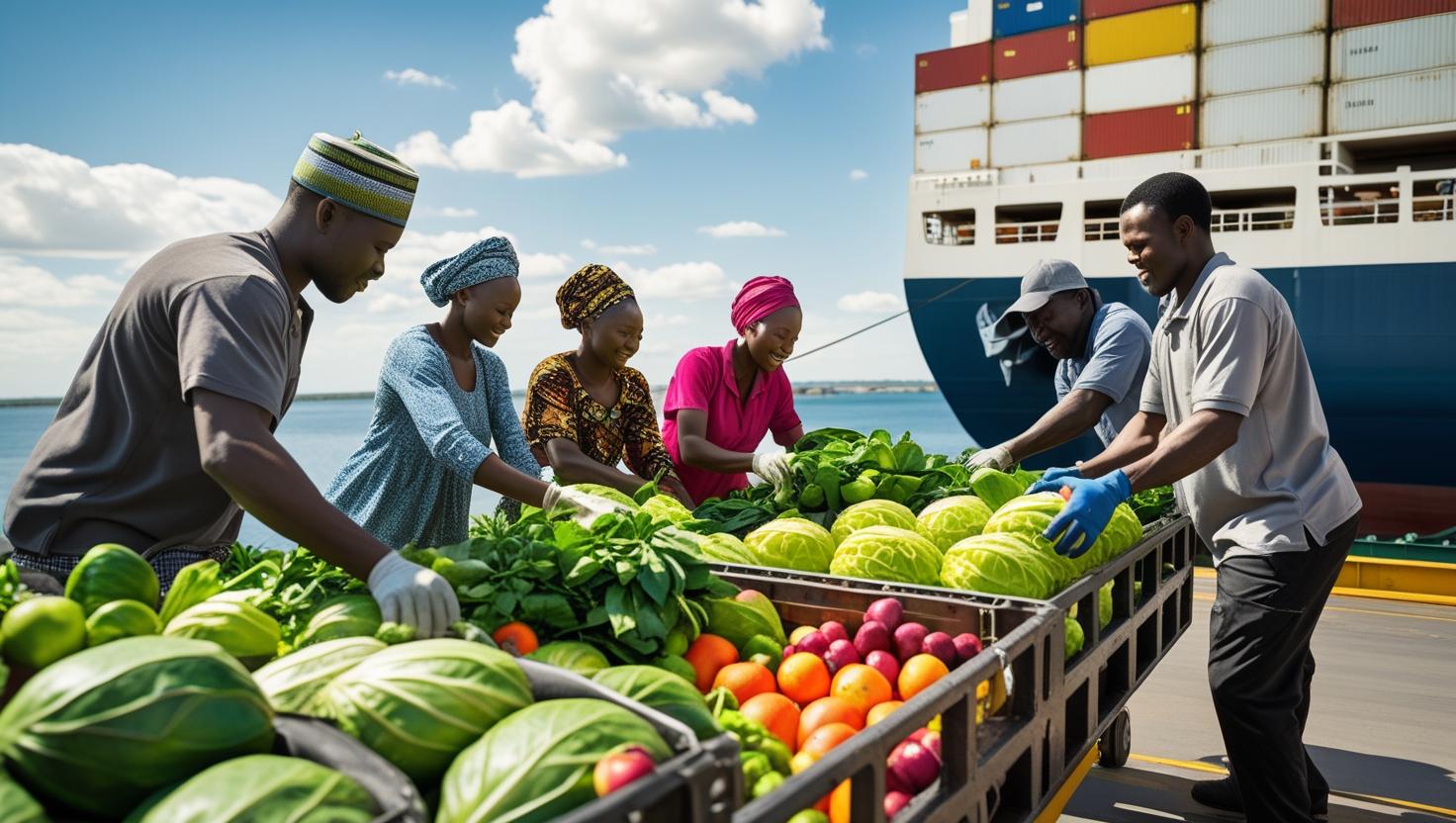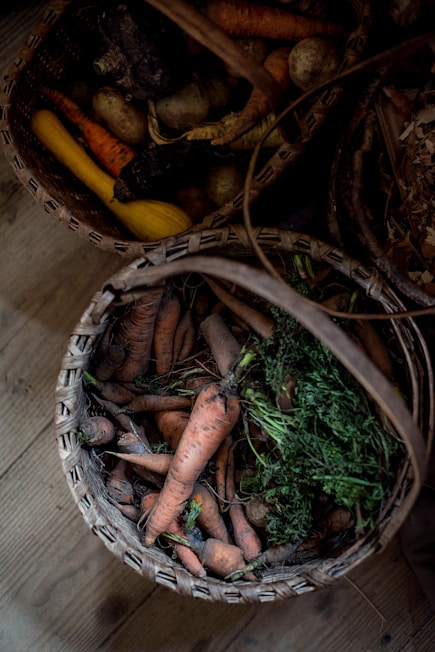
Mastering the Agriculture Ecosystem by Breaking Stereotypes: Unlocking New Possibilities for Sustainable Farming
Agriculture has always been at the heart of civilization, supplying food, resources, and economic support for communities worldwide. However, as the industry continues to evolve, deeply ingrained stereotypes about farming and agricultural practices remain. These outdated perceptions limit the potential for innovation, sustainability, and inclusivity within the agriculture ecosystem. It’s time to challenge these stereotypes and reshape the future of farming.
By breaking the myths and misperceptions that have held agriculture back, we can unlock new pathways for sustainable growth, better environmental stewardship, and greater inclusivity within the agricultural industry. In this post, we’ll explore how rethinking agriculture and dismantling these stereotypes can lead to a more resilient, efficient, and equitable agricultural ecosystem for everyone.
Rethinking the “Old-Fashioned” Farmer: Modern Agriculture is Full of Innovation
One of the most common stereotypes about agriculture is that it is an outdated, low-tech industry reliant on traditional methods. While it’s true that agriculture has a long history, the modern agricultural landscape is anything but old-fashioned. Today, agriculture is a high-tech industry fueled by groundbreaking innovations, from genetic engineering and smart irrigation systems to autonomous farming machinery and precision farming technologies.
Precision farming has revolutionized the way farmers approach crop management. By using sensors, GPS, and drones, farmers can monitor soil conditions, weather patterns, and crop health in real time, allowing them to make data-driven decisions that reduce waste, conserve resources, and boost productivity. Automated machinery, such as self-driving tractors and harvesters, makes farming more efficient while minimizing labor costs and human error. These technologies are transforming farming into a sophisticated, high-tech industry, debunking the myth that agriculture is stuck in the past.
By embracing technological advancements, farmers can tackle some of the world’s biggest challenges, including food security, climate change, and resource depletion. Breaking the stereotype that agriculture is low-tech opens the door to greater innovation and allows the industry to adapt to the needs of an ever-changing world.
Sustainability at the Core: Turning Agriculture into a Solution for Environmental Challenges
Another pervasive stereotype in agriculture is the belief that farming is inherently harmful to the environment. Conventional farming practices, such as monoculture, excessive pesticide use, and heavy irrigation, have indeed contributed to environmental degradation in the past. However, this view fails to acknowledge the many ways in which agriculture is evolving to become a solution, rather than a cause, of environmental problems.
Sustainable farming practices such as agroecology, regenerative agriculture, and organic farming are on the rise and are transforming the agricultural ecosystem. These methods emphasize soil health, biodiversity, and water conservation, ensuring that farming can coexist with nature rather than depleting it.
For example, regenerative agriculture focuses on practices that rebuild soil health through composting, crop rotation, and minimal soil disturbance. These practices can sequester carbon in the soil, helping mitigate climate change, while also improving water retention and reducing erosion. Additionally, integrating livestock into crop farming through rotational grazing can increase soil fertility and enhance biodiversity.
By breaking the stereotype that farming is inherently damaging to the environment, we can promote the widespread adoption of sustainable agricultural practices that protect ecosystems, reduce carbon footprints, and contribute to long-term environmental health.
Inclusive Agriculture: Breaking Barriers and Creating Opportunities for All
Historically, agriculture has been portrayed as a field dominated by older, rural men. While this stereotype may have held true in the past, the reality of modern agriculture is much more diverse. The industry is increasingly being shaped by women, minorities, young entrepreneurs, and urban farmers, who are bringing fresh ideas and new perspectives to the field.
Women are a powerful force in agriculture, making up a significant portion of the workforce in many countries, yet their contributions have often been overlooked. From farm management to leadership in agribusiness and policy advocacy, women are breaking down barriers and redefining the role of women in agriculture. Providing more opportunities for women in farming, particularly through access to land, credit, and education, can greatly enhance agricultural productivity and promote gender equality.
Moreover, the rise of urban farming is challenging the traditional image of agriculture as a rural occupation. Urban farmers are using innovative methods such as vertical farming, hydroponics, and aquaponics to grow food in cities, providing local, sustainable produce to urban populations. These urban farming initiatives are creating new job opportunities, boosting local food systems, and making agriculture more inclusive.
Breaking the stereotype that agriculture is an industry reserved for a specific group opens the door for greater participation from diverse communities, empowering individuals from all backgrounds to contribute to and benefit from agricultural innovation.
Transforming Food Security: Collaborative Solutions to Global Challenges
Food security is a global issue that affects millions of people around the world. The stereotype that food insecurity is simply a matter of agricultural production overlooks the complexities of the problem. In many cases, food security is not about the availability of food but about access to it, distribution inefficiencies, and economic inequality.
Innovations in agriculture, particularly in developing countries, are helping to bridge the gap between food production and distribution. For example, mobile technology is enabling farmers to access market information, connect with buyers, and receive real-time weather updates. This access to information allows smallholder farmers to improve yields, reduce waste, and access new markets for their products, ultimately improving food security in rural areas.
Additionally, urban agriculture and alternative farming methods such as aquaponics and vertical farming are helping to address food security in urban areas by providing fresh, local food where it is most needed. These innovations are essential in building more resilient and sustainable food systems, ensuring that everyone has access to nutritious food, regardless of location.
Breaking the stereotype that food security is solely about agricultural productivity and understanding the complex web of factors that contribute to it allows for more effective, collaborative solutions to global food challenges.
Education and Training: Empowering the Next Generation of Agricultural Innovators
As the agricultural industry evolves, it’s essential that education keeps pace with new technologies, techniques, and challenges. Unfortunately, traditional agricultural education often reinforces outdated stereotypes and doesn’t equip students with the skills they need to succeed in today’s rapidly changing agricultural landscape.
To break these stereotypes and create a future-proof agriculture sector, educational institutions must adapt by offering curricula that blend traditional agricultural knowledge with modern technologies, business strategies, and sustainability practices. This includes training students in areas such as precision agriculture, agri-tech, supply chain management, and environmental stewardship.
Moreover, online learning platforms, agricultural extension programs, and workshops can help farmers at all levels stay updated on the latest trends and innovations in the industry. Lifelong learning and continuous professional development are key to ensuring that farmers and agricultural workers are equipped to meet the demands of a dynamic and competitive industry.
By breaking down the barriers to agricultural education and offering training that embraces both traditional and modern farming practices, we can prepare the next generation of farmers to tackle the complex challenges of the future.
Conclusion: Reimagining Agriculture for a Sustainable Future
The agriculture ecosystem is in the midst of a transformation, and breaking the stereotypes that have long held it back is essential to this process. By embracing innovation, sustainability, and inclusivity, we can build an agricultural system that is not only more efficient but also more resilient, equitable, and environmentally responsible.
The future of agriculture is bright, but it requires a willingness to challenge outdated ideas, invest in new technologies, and create opportunities for a diverse group of individuals to participate in shaping the industry. By mastering the agriculture ecosystem through these innovations and breaking down the stereotypes that limit its potential, we can ensure that farming remains a vital and dynamic force for the global economy and the health of the planet.


